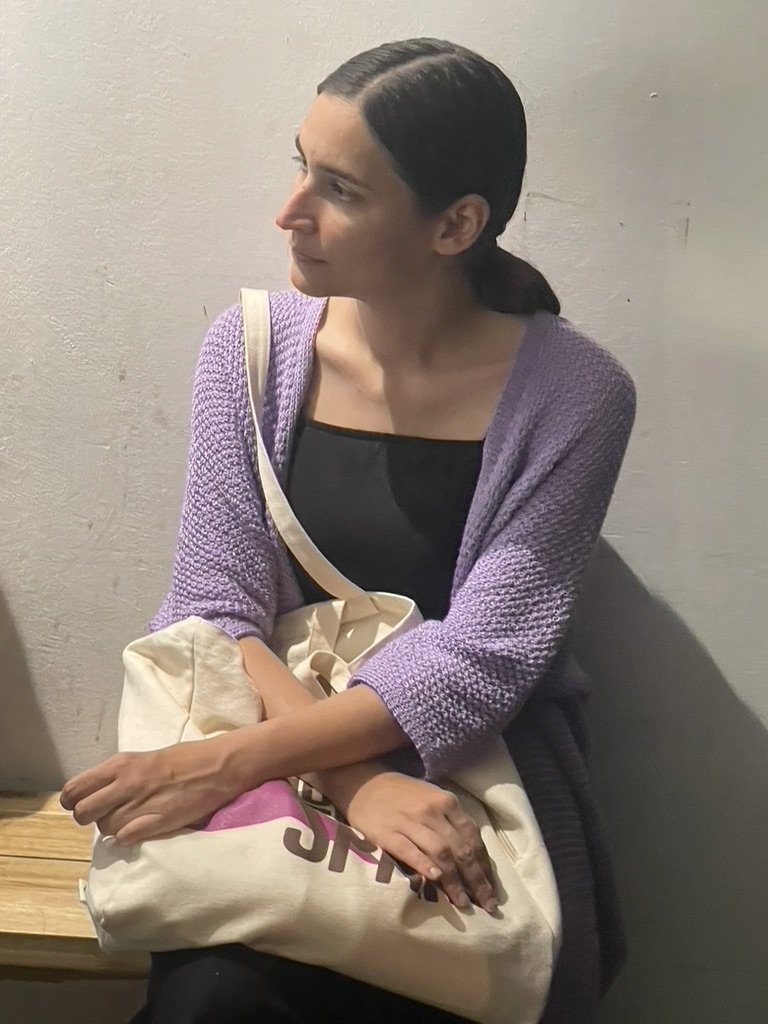
Notes for Creating Affective Methodologies Based on Conviviality
By Co-Director Dagmary Olívar Graterol
“Systematizing experiences,” as Arjun Appadurai (2022) suggests, is crucial for the articulation of collective processes. Unfortunately, capitalist logics often distance us from this aim, reducing it to anecdotal moments. Although this is an aim that is present in my work, this systematization often remains a pending goal due to the absence of time or due to the precarity of working conditions in the cultural realm that I work in. Thus, systematizing these experiences and consolidating my own replicable methodologies for complex processes always seems an unresolved constant or an unmet need. That’s why I think in terms of the anecdotal: it is through anecdotes ––brief moments–– that I socialize these experiences: in formal encounters such as roundtables or conferences or informally, in conversations with colleagues. In this sense, I approach the question of collective experience from the format of “notes” that can help us understand the complexities of an international collective process such as the Global Spains Workshop. I am grateful for the opportunity to think and write from this exceptional space. Without the accompaniment provided by The Global Latinidades Center, I would not have had the chance to write down these ideas —a few notes on some of the experiences lived as the co-director of this program. I write them hoping that they will be useful for further interventions and future collaborations surrounding the notion of conviviality.

Inhospitable Hospitalities: Bad Tourists/Bad Subjects
A reflection on accompaniment and convilality praxis by co-organizer Maria Zazzarino
“Everybody hates a tourist.”
from Pulp’s song “Common People”(1995)
“An ugly thing; that is what you are when you become a tourist.”
from Jamaica Kincaid’s A Small Place (1988)
The night before the Global Spains roundtable with Sindicato de Inquilinos de Madrid at Ateneo La Maliciosa, I was scrolling through Instagram and learned that the tenant’s union chapter in the Canary Islands had been set on fire. According to the union’s Twitter, everything burned down –books, clothes, toys, all material donations, and the union’s meeting place were now ashes. While the police did not confirm the cause of the fire, Sindicato de Inquilinos reported several previous threats to their building. The fire, they say, was intentional, a raging illustration of the rising tensions around housing and tourism in Spain.

Reflections of an Andean Woman on the Potentials and Limits of Conviviality and Accompaniment Solidarity Paradigms
By Global Spains Fellow ICHMAWARMI, migrant and brown woman, antiracist decolonial artivist
I write this a Brown woman whose grandmothers were Quechua-speakers of the Andes and who migrated from the mountains to the capital city Lima, Perú. This is the reason why I grew up speaking Spanish and not Quechua. Later, different circumstances and travels lead me to migrate to Madrid, Spain, where I have been living for seven years, of which three I have been with a residence permit. Previously, I was undocumented, “sin papeles,” and it is under these conditions that I experience the embodied pain of being “the other,” “the non-human,” “the panchita,” the “sudaca,” ––Spanish slurs for Andean and South American migrants.
